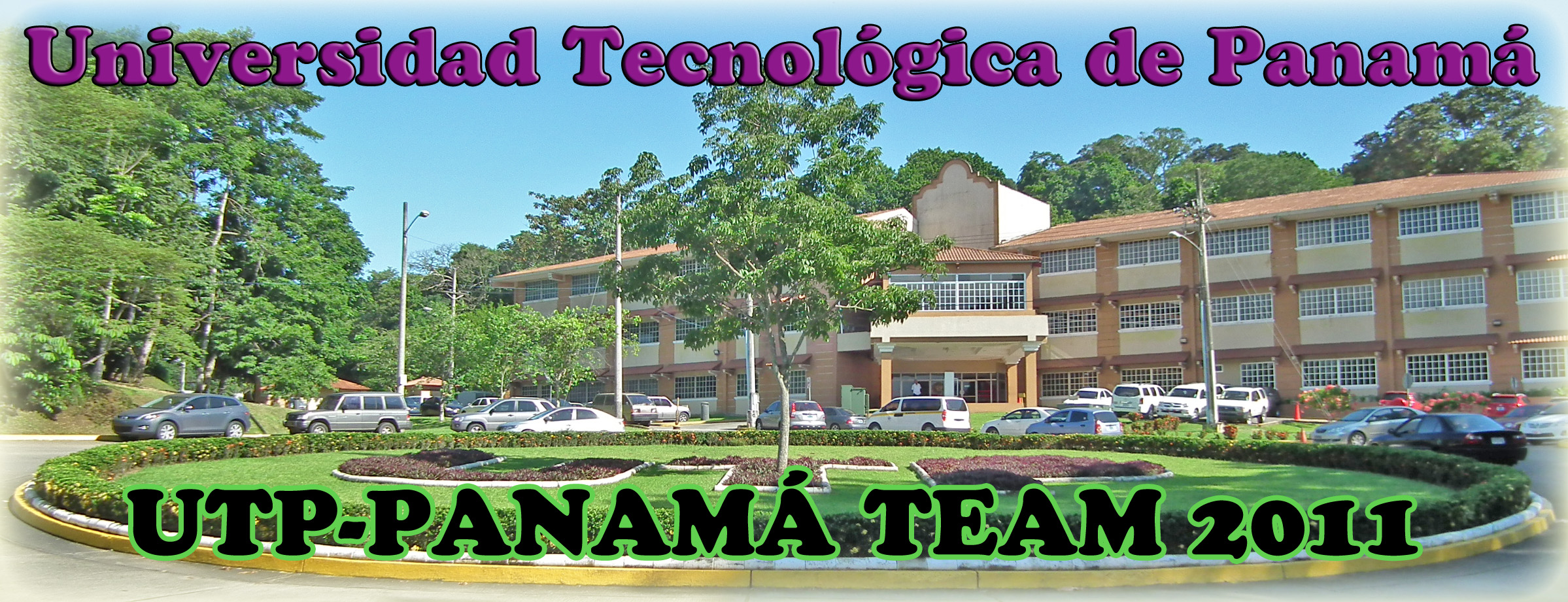Team:UTP-Panama/Home
From 2011.igem.org
(Difference between revisions)
(→ABSTRACT) |
|||
| Line 6: | Line 6: | ||
== ABSTRACT == | == ABSTRACT == | ||
| - | To develop flexible and better sensors for environmental, agricultural and engineering applications are the aims of the UTP-Panama Team “''SynBio Engineering Tool Kit''”. In this way we work with Nitrate Biosensor (PyeaR - GFP composite) developed by Team BCCS-Bristol 2010, which expresses fluorescent signals upon nutrient detection, producing a high-resolution map of arable land. To achieve this goal we use the collateral effect of the AOX enzyme (Alternative oxidase) mainly designed to generate heat in response to a cold-shock, using the hybB promoter. This effect increases the bacteria growth at temperatures below 20°C. | + | <div align="justify"> To develop flexible and better sensors for environmental, agricultural and engineering applications are the aims of the UTP-Panama Team “''SynBio Engineering Tool Kit''”. In this way we work with Nitrate Biosensor (PyeaR - GFP composite) developed by Team BCCS-Bristol 2010, which expresses fluorescent signals upon nutrient detection, producing a high-resolution map of arable land. To achieve this goal we use the collateral effect of the AOX enzyme (Alternative oxidase) mainly designed to generate heat in response to a cold-shock, using the hybB promoter. This effect increases the bacteria growth at temperatures below 20°C. |
| - | Finally we design a prototype device with a better cold shock promoter (CspA promoter) developed by UNAM-CINVESTAV Team in 2010, in order to give our E. coli a “Intelligent Coat", which means that not to only survive a cold-shock but to also still been able to keep up with his duties due to improve their expression mechanism at low temperature. | + | Finally we design a prototype device with a better cold shock promoter (CspA promoter) developed by UNAM-CINVESTAV Team in 2010, in order to give our E. coli a “Intelligent Coat", which means that not to only survive a cold-shock but to also still been able to keep up with his duties due to improve their expression mechanism at low temperature. </div> |
<br> | <br> | ||
<br> | <br> | ||
| - | |||
== Our University: == | == Our University: == | ||
Revision as of 06:01, 27 September 2011
|
Home |
THERMOGENIC RESPONSE NUTRIENT BIOSENSOR (THE RENBO)ABSTRACT To develop flexible and better sensors for environmental, agricultural and engineering applications are the aims of the UTP-Panama Team “SynBio Engineering Tool Kit”. In this way we work with Nitrate Biosensor (PyeaR - GFP composite) developed by Team BCCS-Bristol 2010, which expresses fluorescent signals upon nutrient detection, producing a high-resolution map of arable land. To achieve this goal we use the collateral effect of the AOX enzyme (Alternative oxidase) mainly designed to generate heat in response to a cold-shock, using the hybB promoter. This effect increases the bacteria growth at temperatures below 20°C.
Finally we design a prototype device with a better cold shock promoter (CspA promoter) developed by UNAM-CINVESTAV Team in 2010, in order to give our E. coli a “Intelligent Coat", which means that not to only survive a cold-shock but to also still been able to keep up with his duties due to improve their expression mechanism at low temperature.
Our University:Universidad Tecnologica de PanamáWeb Site: http://www.utp.ac.pa/ |
 "
"

